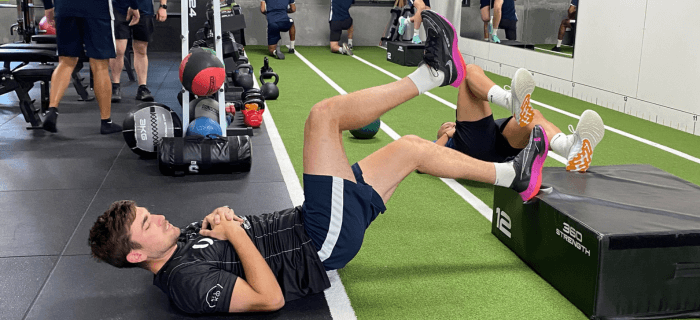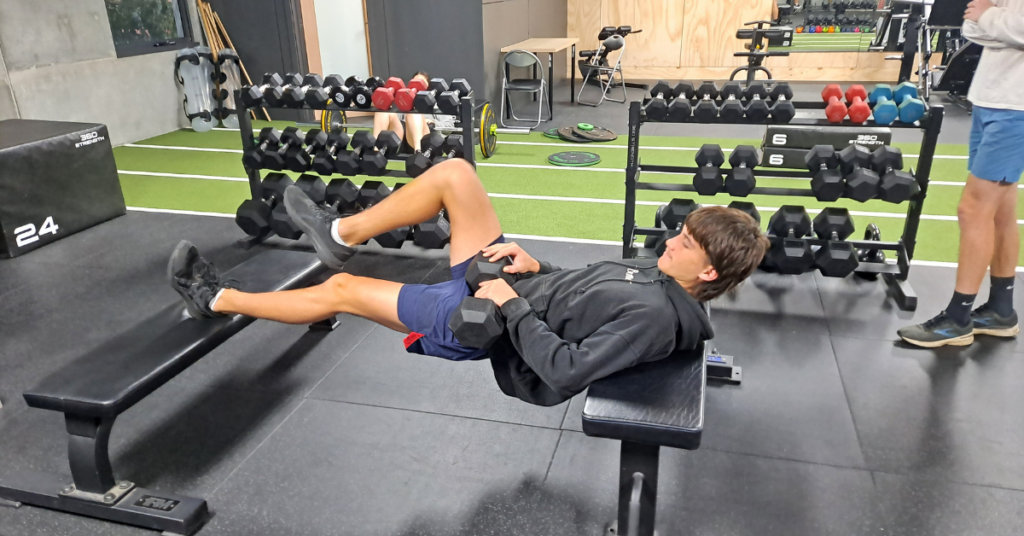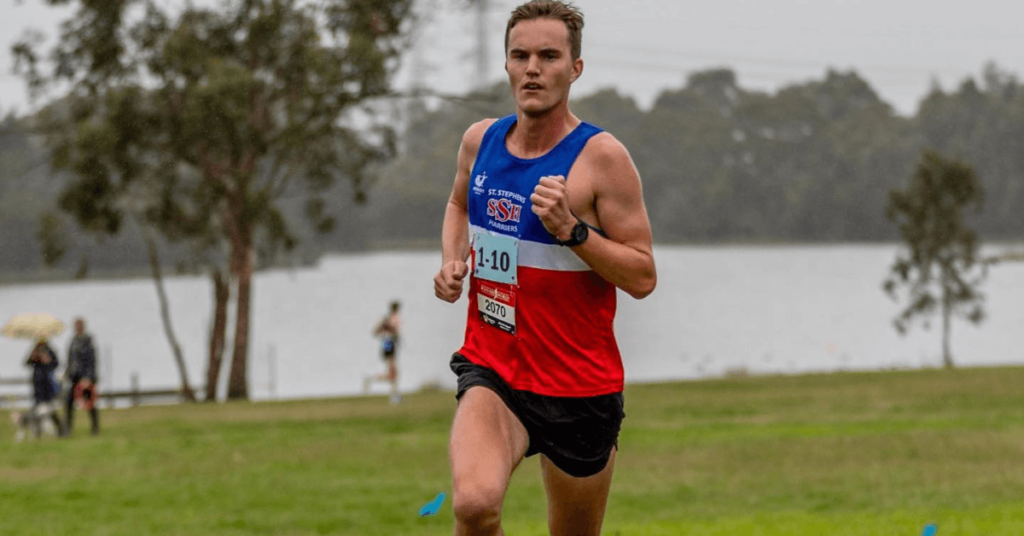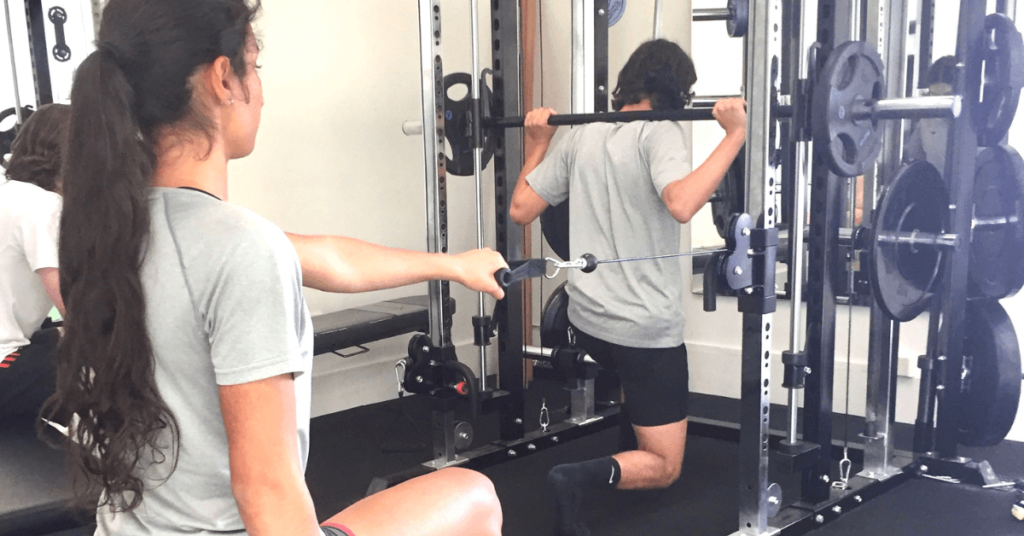Principles of High-Performance Training for Athletes

At its core, high-performance training is more than just sweating it out in the gym or on the field. We often tell our trainees that giving it your all might not be enough to reach the top. It’s not just about raw talent; it’s about working smart, being dedicated, and understanding the nitty-gritty of high-performance training.
So what’s this supposed to mean? Having a high-performance training coach can be your secret weapon. Imagine having a mentor who understands the science behind optimal training and recognizes the nuances of your unique strengths and challenges. Join us as we will be sharing with you what we know about the ins and outs of principles of high-performance training for athletes.
What is high performance in sport?
We’ve heard the term ‘high performance ‘thrown around when discussing sports, competitions, and athletes. But do we know what it means for athletes and in sports? According to Wikipedia, ‘ high performance’ originated from the business trade and is a framework for businesses to achieve successful operations and performance. In addition, when you achieve high performance, it also means that you’re outperforming competitors or peers in the same industry or field by putting in that extra effort and discipline and staying focused on what you do. Simply put, the principle of high performance also applies in sports. Athletes, professional or amateurs, strive and work hard to follow a training program that can give them the highest possible results in competitions.
Is high performance training suitable for athletes of all ages and skill levels?
Abosolutely ! High performance training can be applied to athletes of all skills and ages. At Run Ready, we provide personalized coaching and programs for athletes of all ages and skill levels.
We have this misconception that high performance only caters to elite athletes or athletes with high skill levels. High performance in sports refers to training vigorously and systematically in order to achieve desired results.
It doesn’t say anything about athletes with lower skill levels not being able to do high-performance training. While high-performance training can cater to athletes of all ages and abilities, some considerations must be thought of prior to getting into a high-performance training program.
Athlete performance coaches like ours at Run Ready must perform an initial assessment to gather information about the athlete’s training history, physical development, level of skill, history of injuries, and if there are risks for injury.
Whether you’re a teenager aspiring to join a school team, an adult aiming to improve your fitness, or a professional athlete striving for excellence, there will always be high-performance training programs crafted to bring out the best in you.
Are there dietary guidelines to enhance high-performance training?
Are there dietary guidelines to enhance high-performance training?
In order for athletes to perform at their prime, eating well-balanced meals are critical. Science has proven that there is an indisputable link between sports performance and nutrition.
Here are our some dietary tips to help you boost your athletic performance:
- Make your meals as colourful as possible by incorporating a variety of fruits and vegetables.
- Choose whole-grain carbohydrates and ditch refined sugars and carbs.
- Eat healthy forms of protein like eggs, beans, chicken, fish, peanut butter, etc.
- Stay hydrated.
- Ensure that you’re eating enough to sustain your workouts.
Are rest and recovery important in high-performance training?
While we all know that rigorous and regular exercise is essential in any athlete’s performance, rest and recovery also play an equally important role.
Giving yourself time to take a break helps your body slowly repair itself while strengthening it in between your training sessions. When you have breaks in between, it’s not just the physical aspect that’s addressed; you’re also able to recover mentally. So, don’t feel guilty about resting!

What are the principles of high-performance training for athletes?
Achieving your best in your sport doesn’t happen overnight. It’s a process that involves a strong partnership between you and your trainer or high performance coach. It doesn’t end there. Basic knowledge of the principles of high-performance training is a must for you to understand the hows and whys of your high-performance training program as it can act as a catalyst for better athletic performance.
Specificity
At Run Ready, we recognise how each athlete is unique and have different needs that need to be fulfilled. This is why athlete performance coaches create specialised training programs that will help you improve how you perform in your sport of choice. For example, marathon runners need to work on their endurance, so we create training programs that focus on that. Sport-specific exercise and training regimens are a must!
Progression
The term ‘progression’ refers to a gradual increase. When the body experiences stress on its body, it slowly adapts to the load and stress. Once you reach that adaptation level, your trainer will increase the load, which will ignite continuous change in your body. Your workload increases as you adapt to your training program.
Overload
For athletes to improve, it is vital for their coaches to expose them to stress or a load that’s beyond what they are used to. This doesn’t mean you should just increase without any reason! All increases in training loads should be carefully thought about, managed, and monitored by your performance coach.
Adaptation
One of the best things that humans do best is to adapt. When athletes are exposed to a certain training program, their bodies and minds eventually adapt to it and improve their performance.
Individualisation
Everyone is different from each other. We have different biological profiles, skill levels, training and medical history, and more. This is one of the reasons why athletic performance training should be personalised to address our unique needs. Hiring an athletic performance coach at Run Ready can help you reach your goals in no time!
Reversibility
The principle of reversibility is simple. If you stop training, you lose your gains as well. If you train too much and at an intensity that’s too much for you, there’s no room for improvement. If you train less than your capabilities, your training becomes useless.
High Performance Training – What to Expect?
So, what can you expect when you step in a High Performance Training program?
Expert Assessment
Your journey begins with a detailed assessment utilizing cutting-edge VALD testing equipment. This isn’t just about understanding your injuries; it’s about gaining unparalleled insight into your body’s unique nuances. This program identify injury risks, pinpoint physical deficits, and set personalized goals tailored to your needs.
Comprehensive Sports Rehabilitation
It’s not just about getting you back on your feet; it’s about getting you back to the sport you love with professional-level sports rehabilitation.High-performance training can include sports physiotherapy that aims is to facilitate your seamless return, ensuring you come back stronger and more resilient.
Tailored Training Environment
Often, high performance training caters to adult and junior athletes, from club to national levels. Here, you’re not just a participant but part of a comprehensive training environment. The program focus on two crucial aspects: conditioning and skill development. These sessions aren’t generic; they’re designed to enhance your high-performance abilities and prepare you specifically for designated competitions.
Comprehensive Support
High performance training is more than just training session. You can also expect support, guidance, and a community that believes in your potential. You’ll have access to prescribed strength training sessions meticulously designed to boost your athletic prowess. Plus, you’ll enjoy exclusive access to our state-of-the-art gym, ensuring you have all the necessary resources to succeed.
Learn from the Best
Here, you’ll have the opportunity to interact with high-level coaches and athletes who exemplify high performance standards. They don’t just talk the talk; they walk the walk. Their extensive experience and positive attitude to constant improvement are infectious, motivating you to push your limits and strive for excellence.
Regular strength training focuses on simply building and strengthening muscles. On the other hand, the focus of high-performance training differs because it prepares athletes to perform better in their sport of choice. It’s very sports-specific and caters to athletes who want to improve athletic performance.
At this age of technology, you cannot remove the contribution of technology in an effective athlete performance training program. Technologies like GPS trackers, biomechanical testing equipment, performance tracking, VALD testing equipment, etc all provide coaches unbiased and real-time data on how an athlete trains and performs.
The frequency of your training will differ for every person. Athletes with lower skill levels may train 3 to 4 times a week while elite and professional athletes may train 5 to up to 6 times per week.
Your journey to achieving your athletic goals will not always be smooth sailing. Here are the most common challenges that athletes experience during training:
- Low self-esteem
- Lack of trust in your abilities and your coach
- Very high expectations
- Fear of failure
- Fear of disappointment
- Possible injuries
- Frustration
Being able to perform better in your sport doesn’t just result from excellent and consistent training. There are also other factors to consider to maximise improvements:
- Nutrition and diet
- Sleep
- Motivation
- Lifestyle
- Health
- Rest and recovery




